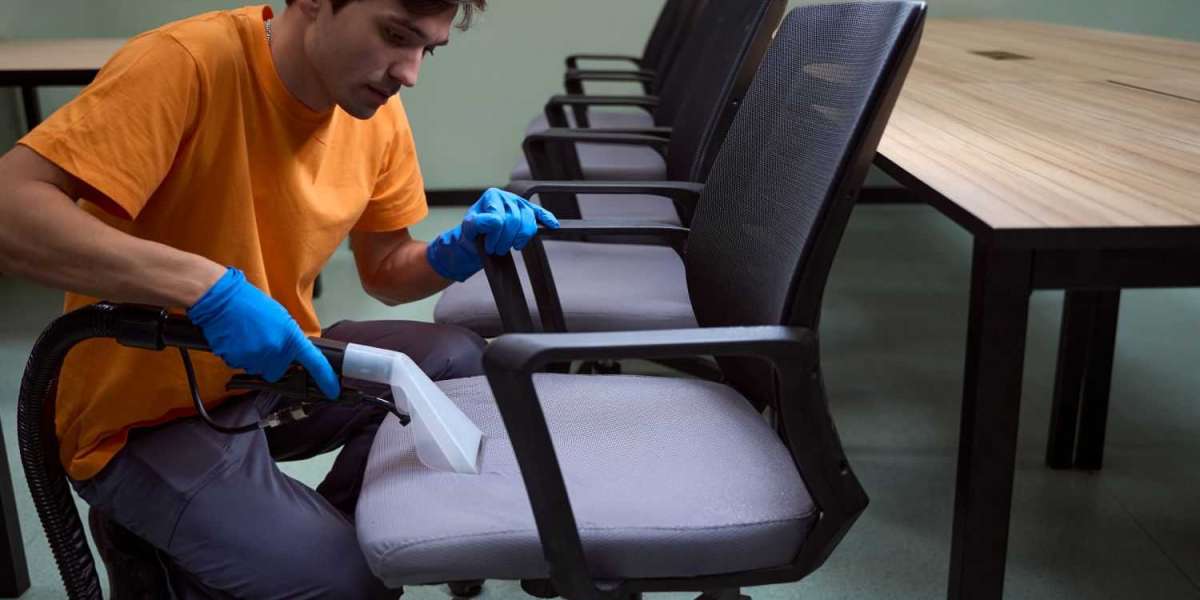Stepping into a clean office feels different. The air feels fresher, the desks shine, and the space seems to hum with energy. Employees feel more motivated, and visitors instantly get a sense of professionalism. On the other hand, a dusty, cluttered, or untidy office sends the opposite message it signals neglect and can quietly affect productivity and morale.
Many business owners underestimate just how much an office’s cleanliness can impact overall success. It’s not just about appearances. Office cleaning directly affects health, focus, team efficiency, and even your company’s financial performance.
In this article, we’ll explore why office cleaning is more important than most people think, backed by real statistics, and how a clean workspace can positively influence both employees and clients.
The Hidden Link Between Cleanliness and Productivity
A clean office isn’t just pleasant to look at it actually boosts productivity. Research by the Harvard Business Review (2023) shows that employees working in clean and organized environments are 13% more productive than those in cluttered workplaces.
Why does cleanliness influence output? When an environment is neat, employees face fewer distractions. They spend less time searching for files, dealing with clutter, or navigating messy communal spaces. Cleanliness fosters a sense of order, allowing the mind to focus on meaningful work instead of minor irritations.
Even small improvements in productivity can make a big difference over a year. In a team of 50 employees, a 13% productivity boost is the equivalent of nearly seven extra full-time workers. That’s a huge return on a relatively small investment in office cleaning.
Protecting Employee Health Through Clean Spaces
Your office may look spotless, but the surfaces employees touch every day can harbor millions of germs. According to the Centers for Disease Control and Prevention (CDC), an average office desk carries over 10 million bacteria, making it far dirtier than a typical toilet seat.
Phones, keyboards, printers, and communal kitchens are hotspots for germs. Without proper sanitation, these bacteria and viruses can spread quickly, increasing sick days and reducing workforce efficiency.
In the UK alone, it’s estimated that workplace sickness costs businesses billions of pounds annually in lost productivity. Regular cleaning, especially deep cleaning of high-touch areas, reduces this risk and keeps employees healthier. A clean office is not just aesthetically pleasing it’s an investment in your workforce’s wellbeing.
The Mental Health Benefits of a Clean Office
Clutter doesn’t just slow work it affects mental wellbeing. Research from Princeton University shows that cluttered spaces compete for our attention, increasing stress and making it harder to concentrate.
When employees work in a clean, well-maintained environment, they report lower stress levels and a stronger sense of satisfaction. A tidy office provides mental clarity, helping teams approach tasks with focus and creativity.
It’s simple: a clean office fosters a calm mind. When employees feel good in their environment, their work quality improves.
First Impressions Matter
When clients or partners walk into your office, they immediately judge your business by its environment. A messy or untidy office can damage your brand before a word is spoken.
The ISSA (Worldwide Cleaning Industry Association) found that 94% of customers would avoid a business with dirty facilities. Clean, organized spaces, on the other hand, convey professionalism, reliability, and attention to detail.
Your office isn’t just a place to work it’s a reflection of your company’s values. First impressions can make or break relationships, and nothing communicates care faster than a spotless, welcoming space.
Clean Desks Improve Daily Efficiency
A clean desk isn’t just visually appealing it saves time. University of Arizona researchers discovered that employees with organized, clutter-free desks spent less time searching for documents and felt 40% more efficient in completing daily tasks.
A simple habit of keeping personal workspaces tidy, wiping down surfaces, and organizing files can have a substantial impact on daily performance. Even small improvements in desk hygiene ripple across the office, influencing overall efficiency.
Clean Offices Reduce Allergies and Illness
Allergens like dust, pollen, and mold accumulate over time, particularly in carpets, upholstery, and air vents. The Environmental Protection Agency (EPA) notes that indoor air can be 2–5 times more polluted than outdoor air, significantly affecting employee health.
Regular cleaning helps reduce airborne particles, preventing respiratory issues, sneezing, and fatigue. Clean air leads to healthier employees, fewer sick days, and a more productive workforce.
Fewer Sick Days, More Productivity
Dust, bacteria, and allergens in offices aren’t just uncomfortable they cost money. Poor hygiene contributes to sick days, which in turn reduces business output. The UK Workplace Insight Report highlights that poor workplace hygiene contributes significantly to lost productivity and absenteeism, costing companies millions annually.
Investing in consistent office cleaning reduces these costs and ensures your workforce can perform at its best. Healthy employees are productive employees.
Financial Benefits of Professional Cleaning
Many businesses view cleaning as an expense but it’s actually an investment.
A clean office reduces absenteeism, increases employee productivity, and extends the lifespan of office equipment and furniture. Dust and dirt in electronics can cause overheating, while spills and stains shorten the life of carpets and furnishings.
Professional cleaning services protect these assets. According to industry research, companies that invest in commercial cleaning often save more in avoided repairs and lost productivity than the cost of the cleaning itself.
Professional Cleaning vs. DIY
Relying solely on in-house cleaning can leave gaps. Employees can tidy desks or empty bins, but professional cleaners disinfect surfaces, sanitize communal areas, and deep-clean carpets and ventilation systems.
Professionals follow structured checklists, use industrial-grade equipment, and reach areas that staff may overlook. The result is a safer, cleaner, and healthier office that meets hygiene standards and creates a more positive work environment.
For businesses seeking reliable assistance, professional providers like Commercial Cleaning Services ensure thorough cleaning that keeps every corner of your office spotless, hygienic, and welcoming.
Sustainability and Green Cleaning
Modern businesses are increasingly aware of their environmental footprint. Choosing eco-friendly cleaning products protects both the planet and employee health.
Green cleaning avoids harsh chemicals while maintaining a hygienic workplace. It also signals to employees and clients that your company prioritizes sustainability a value that resonates in today’s business world.
Employee Morale and Office Cleanliness
Clean offices communicate that employees’ wellbeing matters. When staff see that their environment is cared for, they feel respected and valued.
Studies from the University of Warwick show that happy employees are 12% more productive than those who are dissatisfied. A tidy, sanitized workplace fosters a positive atmosphere, improving retention, morale, and overall performance.
The Role of a Cleaning Schedule
Consistency is key. A one-time cleaning session isn’t enough to maintain a healthy and productive office.
A structured cleaning schedule might include:
- Daily: Wiping desks, sanitizing high-touch areas, emptying bins, and cleaning restrooms.
- Weekly: Deep cleaning meeting rooms, kitchens, and common areas.
- Monthly: Carpet cleaning, window washing, and air vent maintenance.
Following a consistent routine ensures the office remains spotless year-round and prevents dirt and germs from accumulating.
Involving Employees in Cleanliness
While professional cleaning is critical, encouraging employees to maintain tidy workspaces supports overall hygiene. Staff can:
- Keep desks organized
- Sanitize shared devices
- Report spills or issues immediately
A combined approach ensures the office remains clean, functional, and healthy.
Long-Term Benefits of a Clean Office
Investing in professional cleaning pays off over time. Benefits include:
- Reduced employee sick days
- Increased morale and productivity
- Fewer complaints from clients
- Extended life of office furniture and equipment
- Improved company reputation
A clean office isn’t just a short-term fix it’s a long-term strategy that affects health, efficiency, and brand image.
Attracting and Retaining Talent
Job seekers and employees are drawn to workplaces that prioritize comfort, hygiene, and wellbeing. Clean, organized offices make a positive impression during interviews and keep employees satisfied.
It’s a small but significant factor in retaining talent and maintaining a motivated workforce.
Conclusion
Office cleaning is more than just keeping things looking neat it protects health, boosts productivity, and creates a professional impression. A clean workspace shows you value your employees, your clients, and your business. Investing in proper cleaning, whether in-house or through professional services, ensures a healthier, happier, and more efficient office. Simple maintenance today can lead to long-term benefits for both people and performance.








